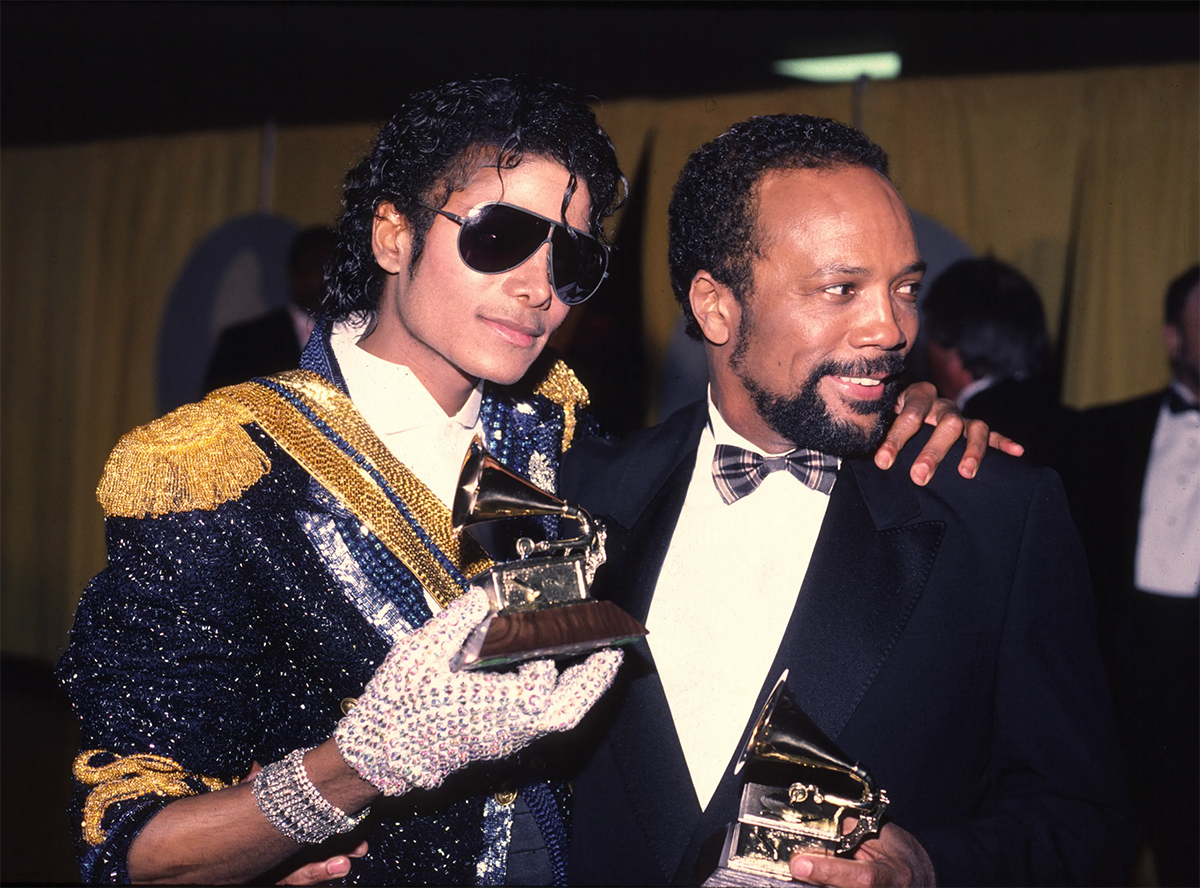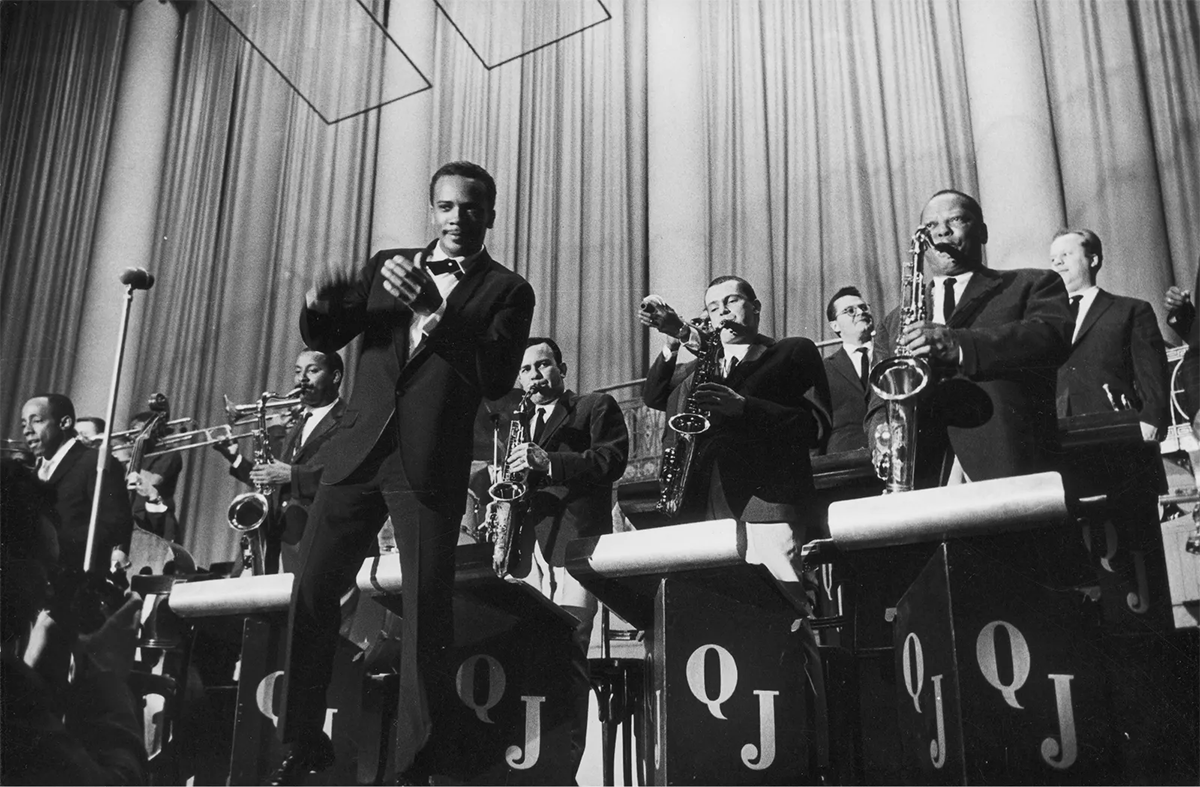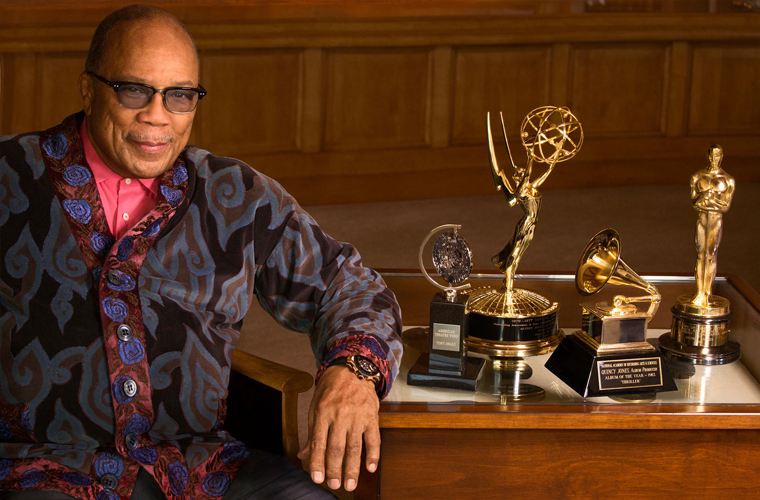Quincy Jones is a record producer, musician, and film producer who was convinced at an early age to explore music by his teenage friend Ray Charles. He played in various bands through the 1950s, began composing for film and television in the mid-1960s, and eventually produced over 50 scores. He has worked with famous musicians such as Michael Jackson, Frank Sinatra, Aretha Franklin, and Celine Dion. He is one of the most Grammy-nominated artists in history, with 79 nominations and 27 wins.
Famed producer Quincy Jones was born Quincy Delight Jr. on March 14, 1933, in Chicago, Illinois. A multifaceted jazz and pop figure, his career began when he played trumpet and arranged for Lionel Hampton (1951-1953). Jones then worked as a freelance arranger on many jazz sessions. He served as musical director for Dizzy Gillespie’s overseas big-band tour (1956), worked for Barclay Records in Paris (1957-1958), and led an all-star big band for the European production of Harold Arlen’s blues opera, “Free and Easy” (1959).
After returning to New York, Jones composed and arranged for Count Basie, Dinah Washington, and Sarah Vaughan, while holding an executive post at Mercury Records and producing his own increasingly pop-oriented records. In the mid-1960s, he began composing for films and television, eventually producing over 50 scores and serving as a trailblazing African American musician in the Hollywood arena.
Jones produced Aretha Franklin’s 1973 album Hey Now Hey (The Other Side of the Sky).

In 1975, Jones founded Qwest Productions, for which he arranged and produced hugely successful albums by Frank Sinatra and other major pop figures. In 1978, he produced the soundtrack for the musical adaptation of The Wizard of Oz, The Wiz, starring Michael Jackson and Diana Ross. In 1982, Jones produced Jackson’s all-time best-selling album Thriller.
In 1985, Jones used his clout among major American recording artists to record the much-celebrated anthem “We Are the World” to raise money for victims of famine in Ethiopia. His work on behalf of social causes has spanned his career, including the Quincy Jones Listen Up Foundation, which built more than 100 homes in South Africa in 2001. The charity aims to connect youths with technology, education, culture, and music and sponsors an intercultural exchange between teens in Los Angeles and South Africa.
Jones produced the 1985 film The Color Purple, directed by Steven Spielberg and starring Whoopi Goldberg, Oprah Winfrey, and Danny Glover, as well as the television series The Fresh Prince of Bel-Air (1990-1996), starring Will Smith. He also published the magazine’s Vibe and SPIN, and in 1990 he formed Quincy Jones Entertainment (QJE), a co-venture with Time Warner Inc. Q: The Autobiography of Quincy Jones was published in 2001.
In a GQ interview published in early 2018, the music icon said he liked contemporary artists like Bruno Mars, Drake, and Kendrick Lamar, but admitted he was no fan of Taylor Swift’s music, saying, “We need more songs, man. F—ing songs, not hooks.” He raised more eyebrows with comments from another interview published in Vulture around the same time, alleging that Jackson “stole a lot of songs” and that Marlon Brando and Richard Pryor had slept together.

The legendary producer released a statement shortly afterward in which he apologized for “bad-mouthing” others, signing off with: “I encourage you all to please grow with me & keep on keepin’ on. Love, an 85-year-old bow-legged man who is still learning from his mistakes.”
In September 2018, a documentary entitled Quincy was released by Netflix. The film was co-directed by his daughter, actress Rashida Jones.
Jones has been married three times. His first marriage was to Jeri Caldwell from 1957 to 1966; they had one daughter together named Jolie. Jones was then married to Ulla Andersson, with whom he shares a son, Quincy, and a daughter, Martina, from 1967 to 1974. Jones’ final marriage was to actress Peggy Lipton. The pair were married from 1974 to 1990, and they have two daughters, Rashida and Kidada. He also has two daughters from other relationships.

